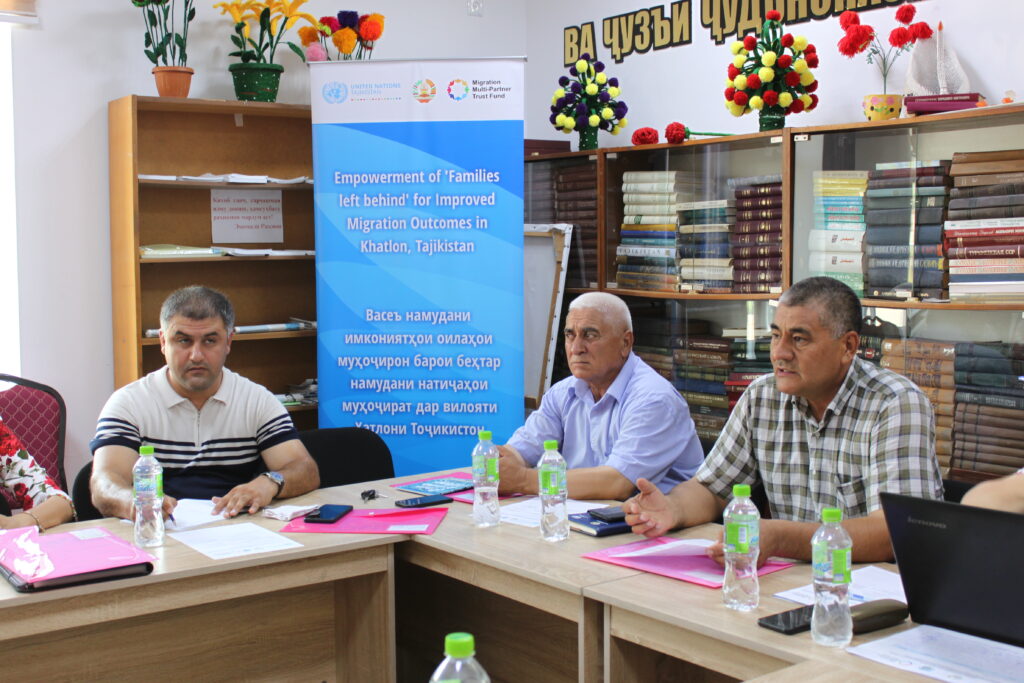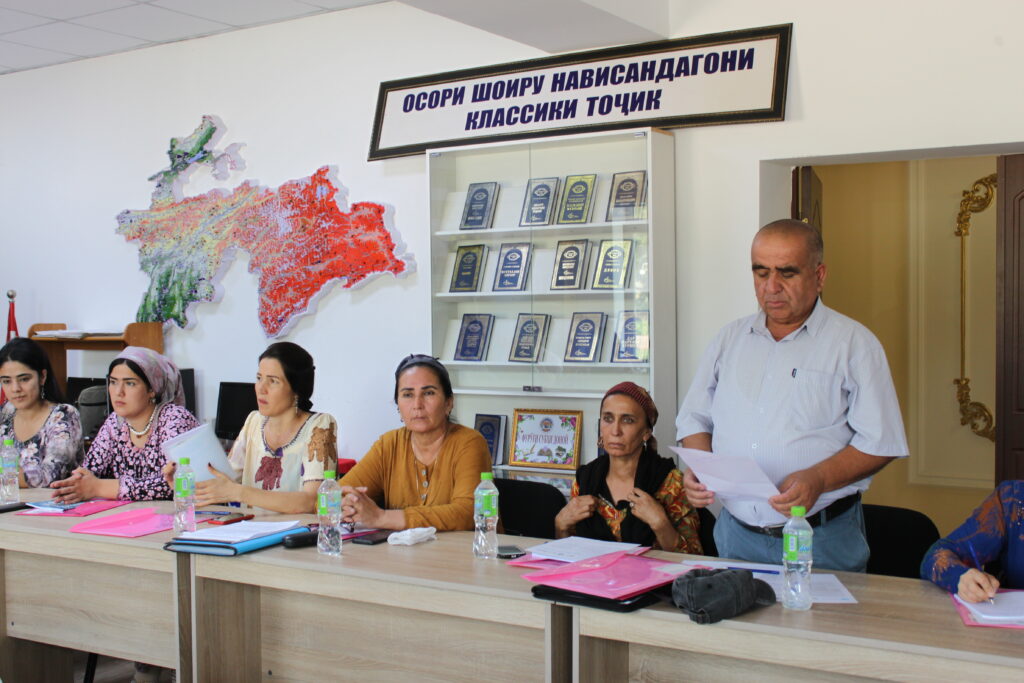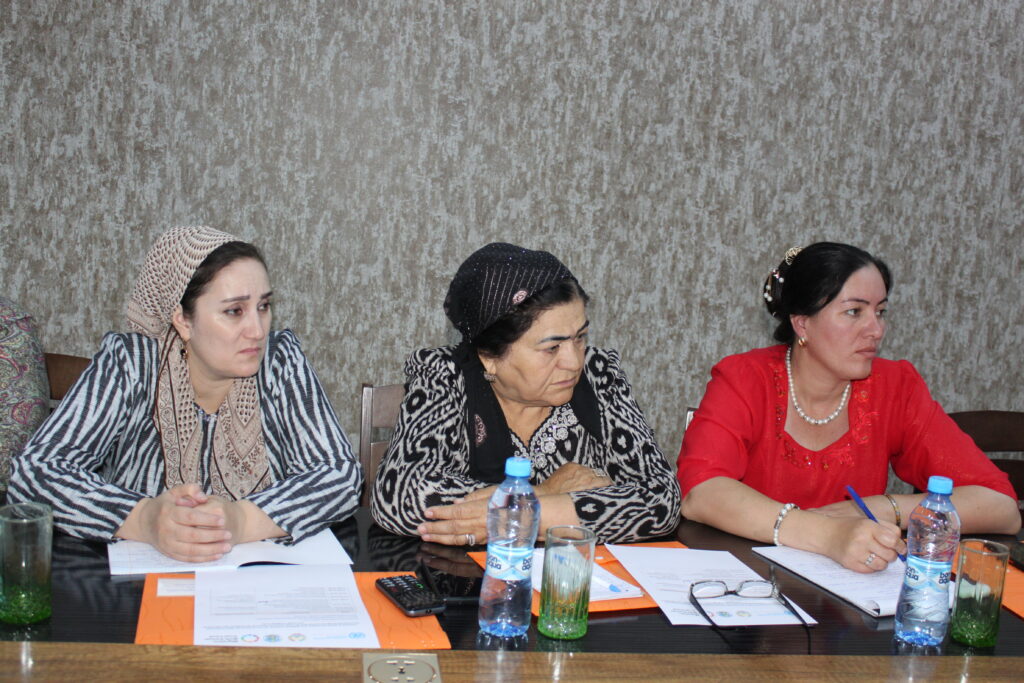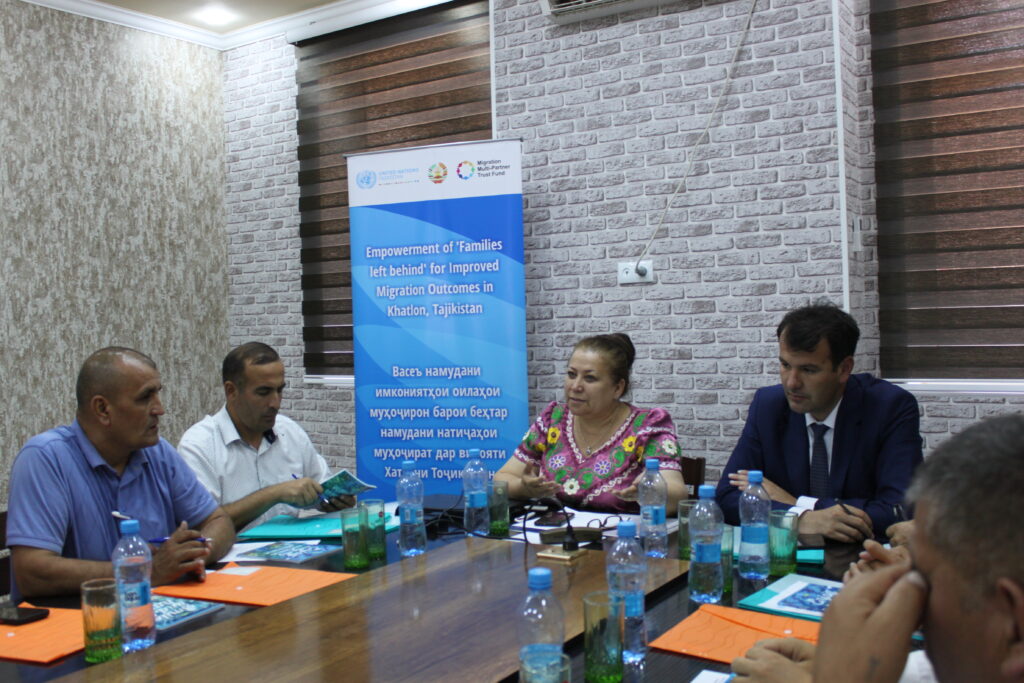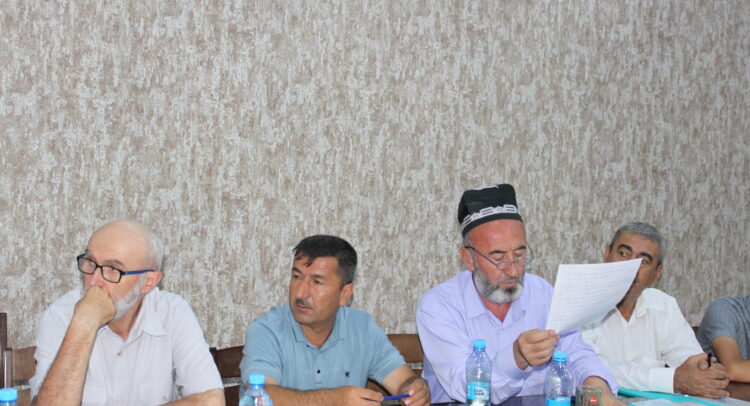Sixty residents from the pilot jamoats of Kulob city and Dusti district gained knowledge and practical skills to improve their socio-economic situation, increase income, and become more socially active in their communities.
Supporting the resilience and enhancing the socio-economic opportunities of migrant family members is a key objective of the project implemented by UN Women in partnership with the public organization “Gender and Development” in the Khatlon region of Tajikistan. The project is funded by the UN Multi-Partner Trust Fund for Safe, Orderly, and Regular Migration (MMPTF) and aims to promote the economic, social, and legal rights and empowerment of families left behind by labor migrants.
Project beneficiaries and partners — including GALS “champions” who completed a one-week training on the methodology and its tools, representatives of local government authorities, jamoat leaders, and heads of mahalla councils — took part in roundtables held in Kulob and Dusti. These events focused on the project’s objectives, practical implementation mechanisms, and key areas of cooperation.
Participants also discussed pressing issues faced by families whose main breadwinners have migrated and, for various reasons, are not supporting them. Project specialists elaborated on the implementation approaches and emphasized the GALS methodology, highlighting how its tools contribute to personal development and expanding one’s vision and opportunities to improve socio-economic wellbeing.
The GALS (Gender Action Learning System) methodology is a process that empowers individuals and groups to define their dreams and goals, plan concrete actions, optimize labor division and expenses, improve decision-making and relationships — all aimed at improving overall well-being and quality of life.
It is expected that the trained team of community-based facilitators will continue to apply and disseminate their knowledge by conducting a series of trainings on the core GALS principles among vulnerable population groups, particularly families left behind by migrants.
